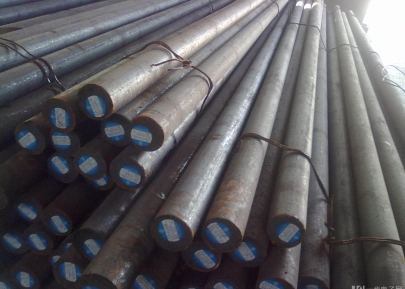Unlocking the Value: Why Raw Copper Blocks Are Essential for Modern Industries
Introduction to Raw Copper Blocks
Raw copper blocks play a vital role in various industries today, from construction to electronics. This article delves into the fundamental properties of copper, its relevance in modern applications, and why copper blocks are an indispensable resource for manufacturers and industries around the globe.
Properties of Copper
- Conductivity: Copper is known for its excellent electrical conductivity, making it an optimal choice for wiring and electrical components.
- Ductility: Its ability to be stretched into thin wires without breaking enhances its utility.
- Corrosion Resistance: Copper's resistance to tarnishing and oxidation extends its lifespan significantly.
The Process of Obtaining Raw Copper Blocks
The journey of copper from ore to raw block involves several steps: extraction, smelting, and refining. Each step is crucial to ensure the purity and usability of the copper. Let's dive deeper into this process.
Extraction
Copper is typically extracted from its ores through mining. This can be done via open-pit mining or underground mining, depending on the ore's location.
Smelting and Refining
Once mined, copper ore undergoes smelting where impurities are removed, yielding raw copper. This process can involve the use of various chemicals and high temperatures.
Applications of Raw Copper Blocks
Raw copper blocks find a myriad of applications across different sectors. Below are some key industries that utilize copper blocks:
| Industry | Application |
|---|---|
| Construction | Electrical wiring, plumbing, roofing |
| Electronics | Printed circuit boards, connectors |
| Aerospace | Components in aircraft and spacecraft |
| Automotive | Electrical systems, radiators |
Does Copper Block Radiation?
This is a common question amongst consumers and industries. The fact is, copper does have properties that allow it to block certain types of radiation, although it's not entirely foolproof. Its density and atomic structure enable it to attenuate electromagnetic radiation to a certain extent, making it beneficial in specific applications.
How to Make Copper Plates
Creating copper plates can be an intricate process, but with the right tools and techniques, it’s achievable. Here’s a simple step-by-step guide:
- Start with raw copper blocks.
- Cut the blocks to desired dimensions using precision tools.
- Heat the copper to make it malleable.
- Use rolling machines to flatten the copper into plates.
- Cool and treat the plates to enhance durability.
The Economic Impact of Copper
Copper remains a significant commodity in the global market. The fluctuation in copper prices affects various industries, influencing construction costs, electronics pricing, and much more.
Key Economic Factors
- Global Demand: The rise in electric vehicle production and renewable energy systems has significantly increased copper demand.
- Supply Constraints: Issues in mining or geopolitical factors can impact supply, leading to price increases.
Sustainability of Copper Resources
As industries look for sustainable materials, copper shines. It's 100% recyclable without losing quality, making it a green choice for many manufacturers.
Challenges Facing the Copper Industry
Despite its numerous advantages, the copper industry faces challenges:
- Environmental concerns related to mining processes.
- Price volatility and market instabilities.
- Competition from alternative materials.
Conclusion
Raw copper blocks are more than just material; they represent a fundamental building block of modern civilization. From construction to advanced electronics, their utility is irreplaceable. Understanding copper's properties, applications, and economic implications can help industries leverage this vital resource effectively.
FAQ
1. What industries use copper blocks?
Industries such as construction, electronics, aerospace, and automotive utilize copper blocks in various applications.
2. How do I protect my copper blocks from corrosion?
Applying protective coatings or varnishes can safeguard copper from environmental elements that may lead to corrosion.
3. Can I recycle copper blocks?
Yes, copper is 100% recyclable, making it a sustainable choice for many applications.
4. Does copper have any health implications?
In general, copper is safe; however, excessive exposure can lead to toxicity, so handling precautions are essential.
5. How can I identify the purity of copper blocks?
Purity can be tested using a variety of methods, such as chemical assays or X-ray fluorescence spectrometry.



